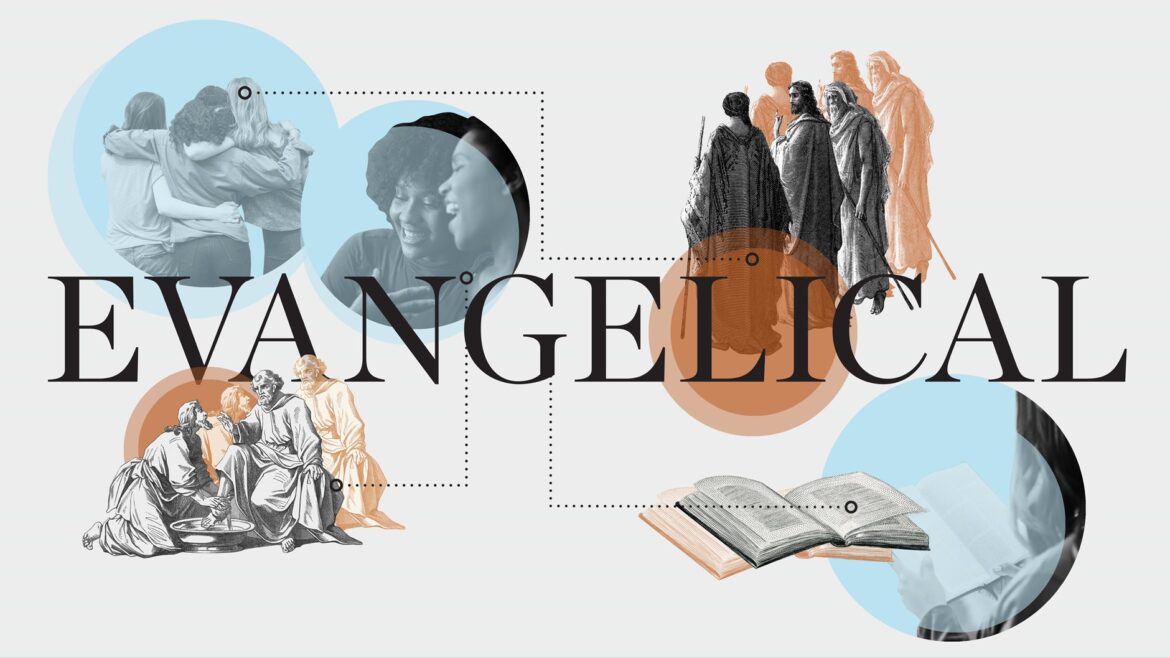Evangelical Christianity, like a multifaceted gem, reflects a spectrum of beliefs and practices destined to shape the broader Christian landscape. At its core, evangelicalism emphasizes a personal relationship with Jesus Christ, scriptural authority, and the imperative of evangelism. This intricate web of faith not only defines the individual believer but also influences global Christianity, rendering evangelicals a prominent cornerstone within the faith community.
To define what it means to be an evangelical Christian, one must peel back the layers of common perceptions, revealing a rich tapestry woven from several fundamental beliefs. Central to evangelical thought is the doctrine of the authority of Scripture. This conviction posits the Bible as the inerrant Word of God, a rule of faith and practice that guides the believer’s life. Adherents often regard the scriptures not merely as ancient texts, but as living documents that resonate with divine wisdom and power, inferring that the truth contained within holds transformative potential.
Evangelicals also robustly affirm the necessity of personal conversion, often characterized by the term “being born again.” This moment of spiritual awakening serves as a catalyst for a lifelong journey of faith and discipleship. It encapsulates the idea that genuine Christianity is not merely an adherence to rituals or doctrines but involves a dynamic and personal encounter with the living Christ. Herein lies the evangelical paradox: while each believer’s experience is profoundly personal, it interconnects with the larger communal narrative of faith, union with Christ, and the call to spread the Gospel.
Moreover, the concept of the Trinity—God as Father, Son, and Holy Spirit—is fundamental to evangelical belief. This doctrine underpins the understanding of salvation, grace, and the workings of the divine in the lives of believers. Evangelicals encapsulate the notion of redemption through grace alone, asserting that salvation is a divine gift, unearned and given freely through faith in Jesus Christ. This theological framework creates a compelling draw for individuals seeking hope and meaning amidst the complexities of contemporary life.
As we delve deeper into the hallmarks of evangelicalism, one cannot overlook the missional aspect intrinsic to this movement. The Great Commission, articulated in Matthew 28:19-20, underscores the urgency with which evangelicals approach their call. The imperative to make disciples of all nations reverberates through the corridors of evangelical history, compelling countless believers to engage in evangelism across various cultures. Throughout the ages, missionaries have traversed oceans and continents, kindling flames of faith in diverse settings, where the Gospel has often taken on unique expressions reflective of local cultures.
The global influence of evangelical Christianity is staggering. Spanning continents, from Africa to Asia and Latin America, evangelical movements have burgeoned dramatically over recent decades. In Africa alone, evangelicalism has seen exponential growth, with entire communities embracing the message of the Gospel, reshaping societal norms and values. The intermingling of traditional beliefs with evangelical tenets creates a rich cultural dialogue, fostering unique expressions of faith that challenge and invigorate the Christianity of the Global North.
Similarly, in Latin America, the evangelical resurgence often stands in stark contrast to both Catholicism and secularism. While traditional Catholicism still holds significant sway, evangelical denominations have emerged as powerful musical instruments in the symphony of faith, attracting adherents who resonate with their fervent worship and emphasis on personal experience. This new wave of Christianity reframes the narratives of identity and community, galvanizing social change and delivering hope to the marginalized.
Yet the evangelical movement is not without its complexities. The political landscape in many regions has forged an intricate relationship between faith and societal issues, leading to polarized perspectives on moral and ethical concerns. This interlace often reveals evangelicals grappling with their cultural identity, attempting to navigate the dichotomy between cultural engagement and separatism. The challenge lies in maintaining fidelity to the core tenets of faith while influencing societal structures and public discourse.
The unique appeal of evangelical Christianity lies not only in its doctrinal clarity but also in the vibrant community it fosters. Evangelical congregations often serve as hubs of support, creating spaces where believers can engage in fellowship, worship, and service. The communal nature of evangelism breeds mutual encouragement, cultivating a shared mission that transcends individual aspirations. In an increasingly fragmented society, this sense of belonging resonates deeply with individuals seeking connection, purpose, and community.
In conclusion, evangelical Christianity stands as a testament to the dynamic interplay between faith and culture, characterized by a set of core beliefs that promote personal transformation, communal engagement, and a global mission. Through the lens of evangelicals, one may observe a movement that both reverberates through its historical roots and looks forward to an unfolding future—filled with hope, creativity, and the enduring legacy of a faith that continues to shape landscapes around the world. As the evangelicals navigate the intricate themes of culture, identity, and belief, they remind us of the power inherent in the message of the Gospel and the transformative effect it can elicit in lives across varying contexts.



